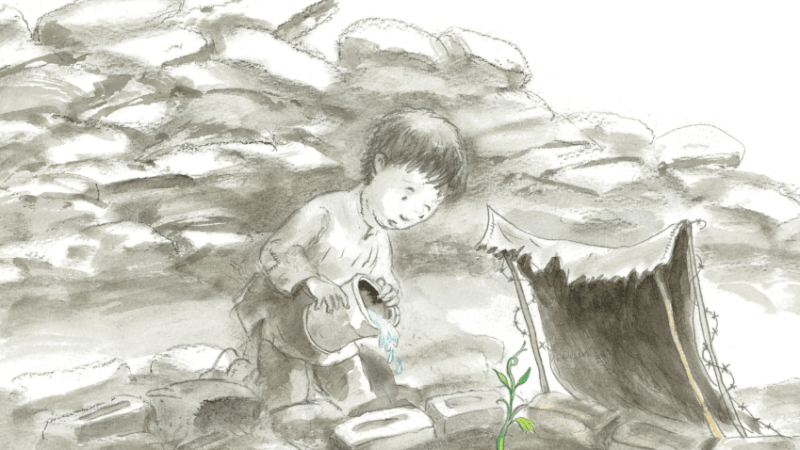If Parents Don’t Understand Your Contribution To Children’s Development, Shout About Your Expertise

Are you undervalued? Then it's time to make your qualities known

It’s sad to say it, but the society we live in today is undoubtedly sexist, and often misogynistic. Women still earn considerably less than men in almost every industry, with little sign of the gender pay gap decreasing.
Why am I writing about this? Because childcare and early years teaching is primarily staffed by women. I don’t mean to exclude men reading this – you are part of a much-needed and important movement – but sadly you’re in the minority.
But there isn’t only a huge gender gap in terms of pay; there’s also one when it comes to respect.
Think about motherhood: undoubtedly the hardest job in the world, it’s probably also the only job in the world considered ‘lazy’ or ‘unambitious’ if you do it full time. How often have you heard full-time mothers say, “Oh, I’m just a mum” when asked what they do for a living? You don’t hear “I’m just a stockbroker” or “I’m just a doctor”, so why do mothers feel the need to apologise, as if they don’t contribute anything to society?
In short, motherhood is an incredibly undervalued role. There are no wages (in fact mothers are paid to not full-time mother by encouraging them back into the workforce), no sick days, no holiday pay, and no annual appraisals. There’s just not enough respect or admiration for the work that they do.
Whether or not you have children of your own, this matters to you because your role is inextricably tied to motherhood. Childcare and education workers are, in essence, doing the work of mothers, the roles that would have been filled by them many years ago. While we don’t value motherhood in our society we won’t value those working in the early years. No matter how many qualifications you hold, or how wide your knowledge, there will always be those who think you ‘just look after children’.
Of course, you do so much more than this. Your role is an incredibly important one and hard work. It requires study and dedication, as much as any other. How then, do you get parents to truly value what you do? I have some ideas, which focus on two principles: showing your knowledge, and sharing your knowledge.
Show your knowledge
Does your setting have a website? If so, do you have an ‘About us’ page? If not, you should have! This page should have a brief introduction to your setting, followed by an introduction to your staff. For each practitioner include a small headshot photo and a biography.
As well as the standard family information, this should detail qualifications the staff member holds, and if the grade was an especially good one (a distinction, or first, for instance) then that should be shown too. Add a section at the end on ‘special interests’, listing areas that the person feels particularly passionate about, for instance, SEN or communication skills, etc. You see these sorts of biographies on all corporate websites, so why not those from early years settings?
On a similar note, if your setting has a prospectus for potential parents, make a big deal of staff qualifications, experience and passions in it. Perhaps with abridged versions of the professional biography, or just allude to how qualified staff are: “Our staff are highly qualified and experienced professionals” works well. Don’t shy away from this in pursuit of a more nurturing approach to marketing – you can market both!
You should also frame and display qualification certificates in a prominent place, if staff give their permission – it’s a great way to show instantly how qualified your team is. They should be easily visible to everyone entering your setting, ideally in an area that parents commonly wait in to drop off or collect their children.
Share your knowledge
How much of your hard-earned knowledge do you share with parents? As experts in your field, you can be a valuable resource to mums and dads in need of support. Sharing your knowledge with parents is helpful to everybody, but especially to you when it comes to demonstrating the value of your role. There are several ways you can do this; here are a few ideas.
Why not write a weekly newsletter? Many settings do this, particularly schools, but often they tend to just sum up the events of the week and provide dates for forthcoming events. Adding a short article (no more than 300 words) on a different subject each week is a great way to share your knowledge and put you in a position of authority as a professional. It takes some planning to do; my advice (as somebody who does this each week) is to take some time to write several pieces and plan future topics. I can usually write a month’s worth of newsletters in two or three hours as well as planning topics for the next month in the same time frame.
If you haven’t got a Facebook page for your setting yet, you need one! As well as being a great way to communicate and advertise your services, Facebook is a wonderful place to share your knowledge and raise respect for staff. You don’t have to write long articles here; just share ones written by people you respect, post memes (illustrated quotes), or update readers on any new research out. I schedule my Facebook posts a month in advance and, again, take a couple of hours to do this.
Another option is to write a monthly blog. This is similar to what you might do with your newsletter, except the articles are longer. You could host this on your own website, or on a blogging site like WordPress or BlogSpot. Aim for your post to be between 500 and 1,000 words, and then share a link to it on your Facebook page. There are some well respected early years professionals who have raised their profile in this way. My favourite is Teacher Tom, at teachertomsblog.blogspot.com.
Finally, you could try running child development information workshops, choosing a special theme to cover a few times per year – it’s the ultimate way to get ‘your’ parents to value your role. Choose a topic, such as discipline and behaviour, improving communication skills, or attachment and bonding, and offer spaces to parents, either for free, or for a small fee (great for fundraising).
PROVE YOUR WORTH
Four ways to demonstrate your team’s value.
1 Highlight achievements Highlight your team’s qualifications and interests online and in marketing materials. Display framed certificates or awards in a place where parents will see them.
2 Share expertise Use a regular newsletter to pass on your knowledge, in the form of short articles on childcare and development. Alternatively, you could set up a blog and write longer pieces on similar topics – a great way to showcase your expertise!
3 Spread the news If you haven’t already, set up a Facebook page and use it to share the latest research, and news of your setting’s or your team’s successes, with parents.
4 Educate parents Hold parent information workshops on different aspects of child development several times a year – why not survey parents on what topics they would like support with?
Sarah Ockwell-Smith is a parenting expert, author and mother of four.









